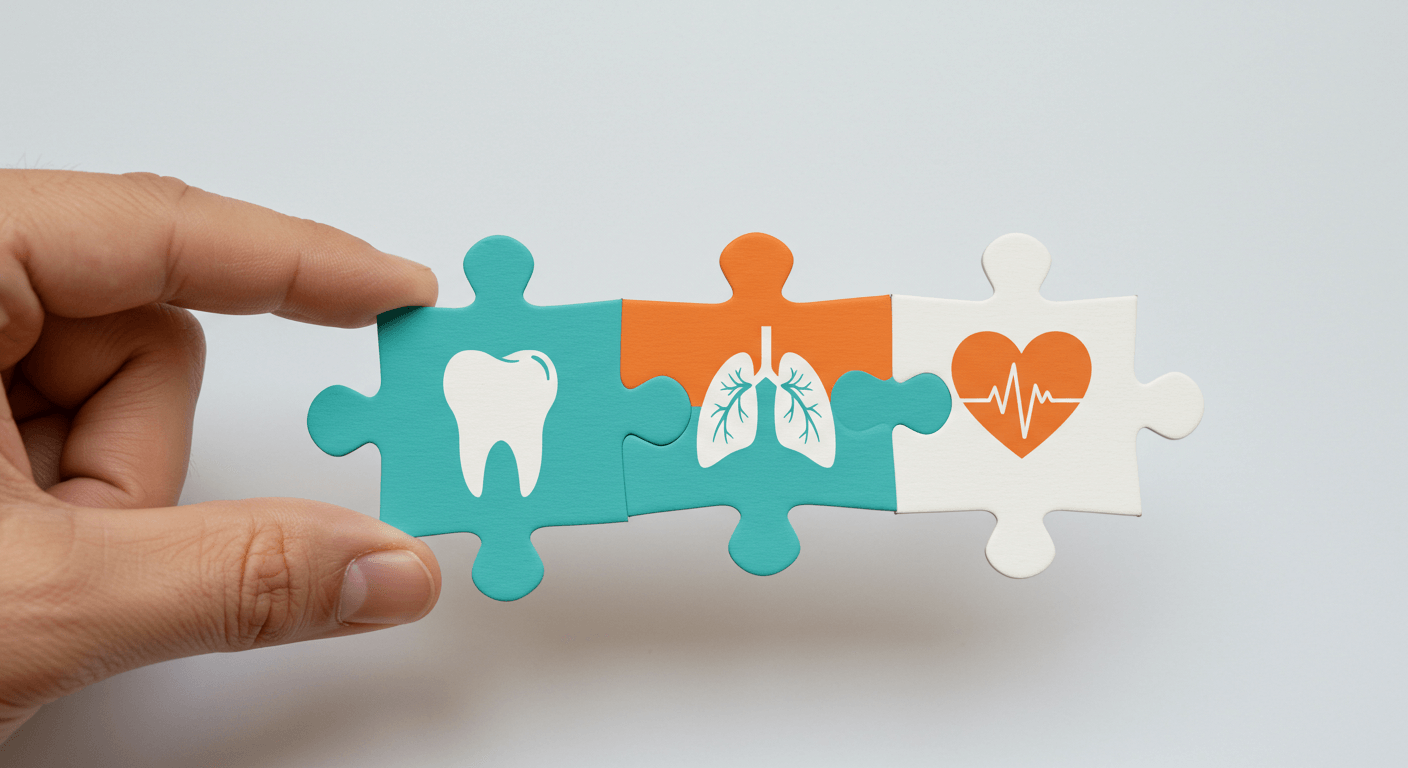
Do you wake up with a tired, tense jaw? Do you have headaches that mysteriously appear in the morning? Or has your dentist perhaps mentioned unusual wear on your teeth? If any of these questions sound familiar, you might be part of a huge but often undiagnosed club – the club of people with bruxism.
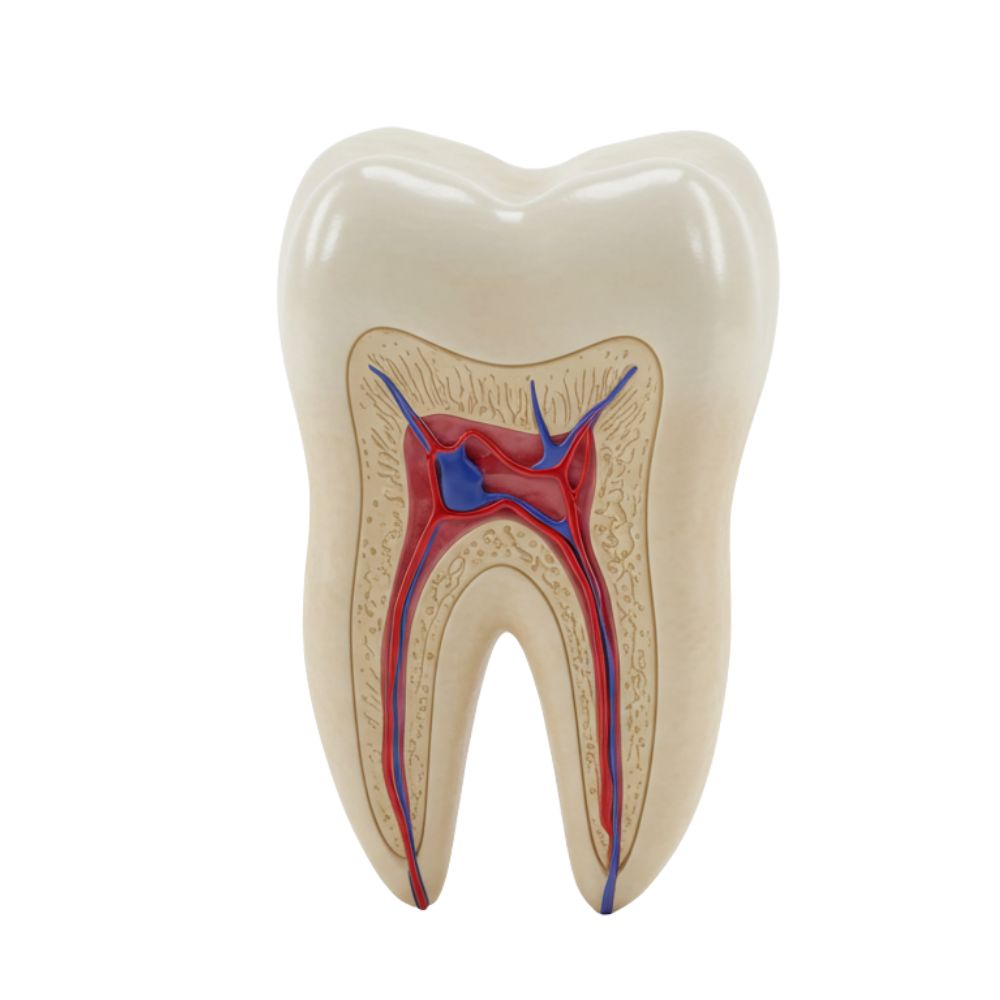
This is not just a "bad habit." It is a condition with serious consequences that, in many cases, acts as a smokescreen hiding a much deeper problem related to our sleep quality. In this article, we will dive deep into the world of bruxism – what causes it, what the symptoms are, and most importantly: what is its critical link to sleep apnea and how modern medicine, with the leading role of experts like Adapt BG, is introducing contemporary standards in diagnosis and treatment in Bulgaria.
What Exactly is Bruxism? Clenching, Grinding, and Tapping
Simply put, bruxism is the medical term for unconsciously clenching, grinding, or tapping the teeth. The force exerted during these episodes can be many times greater than that of normal chewing. Although we often use these terms interchangeably, they describe three different actions:
1. Clenching
This is a form of bruxism characterized by prolonged and forceful tightening of the jaw muscles, without the back-and-forth movement typical of grinding. Clenching usually occurs during the day, often in response to stress, anxiety, or as an unconscious habit during concentration. Signs include tenderness in the jaw muscles, headaches, and worn tooth surfaces. Over time, it can lead to jaw pain, temporomandibular joint (TMJ) disorders, and even tooth fractures.
2. Grinding
Grinding involves the rhythmic rubbing of teeth against each other. This form is more common during sleep and is often associated with sleep disorders like sleep apnea, as well as an improper bite. The symptoms are more aggressive: increased tooth sensitivity, wearing down of tooth enamel, flattened or chipped teeth, and facial muscle pain. If left untreated, grinding can cause severe damage to the teeth, TMJ disorders, and facial pain.
3. Tapping
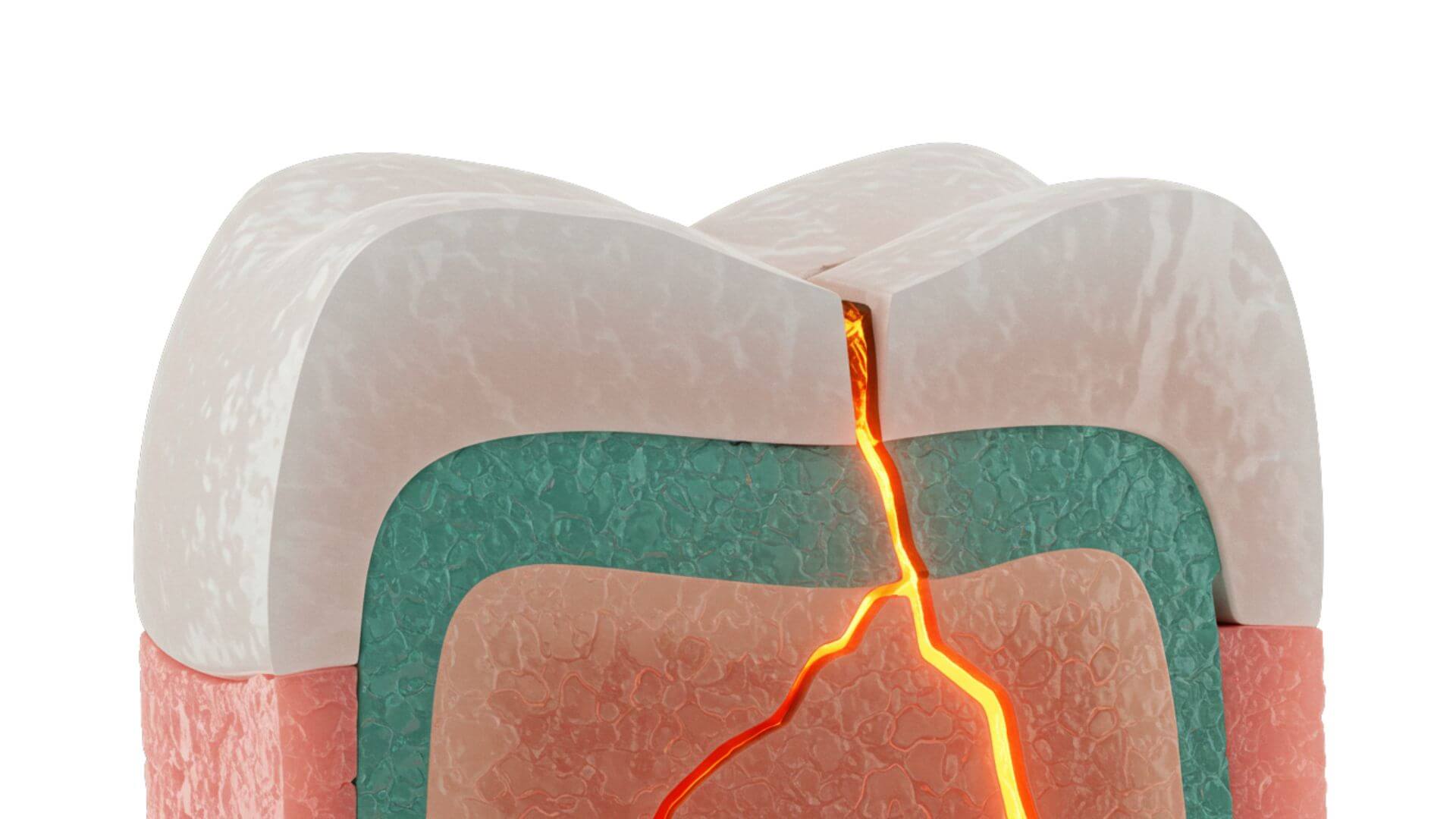
This is a less common type of bruxism, characterized by repetitive, light tapping of the teeth together. Unlike clenching and grinding, tapping involves minimal force and is often associated with nervous habits or anxiety. While it may seem less harmful, it can still lead to dental problems such as tooth wear, sensitivity, and gum irritation.
Key Symptoms to Watch For:
- Dental problems: Worn, flattened, cracked, or chipped teeth. Increased tooth sensitivity.
- Muscle pain: Fatigue, pain, and tension in the chewing muscles (masseters), which can make your jaw feel "locked" or difficult to open.
- Headaches: A characteristic dull headache starting from the temples.
- Ear pain: Although not an ear problem, pain from the jaw joint is often felt there.
- Characteristic sound: Your partner may complain of a loud and unpleasant grinding sound at night.
- Teeth imprints on the tongue.
The Critical Link: Bruxism and Sleep Apnea
For many years, bruxism was primarily seen as a dental or psychological problem related to stress. However, modern medicine reveals a much more worrying picture: nighttime teeth grinding is, in many cases, a direct symptom of obstructive sleep apnea (OSA).
Scientific data strongly confirms this connection. Studies show that approximately between 33% and 50% of adult patients diagnosed with obstructive sleep apnea (OSA) also have bruxism. A large-scale study involving over 900 people with OSA found that almost half (49.7%) of them also suffered from sleep bruxism. This frequency is much higher than in the general population, where it is found in about 13% of people.
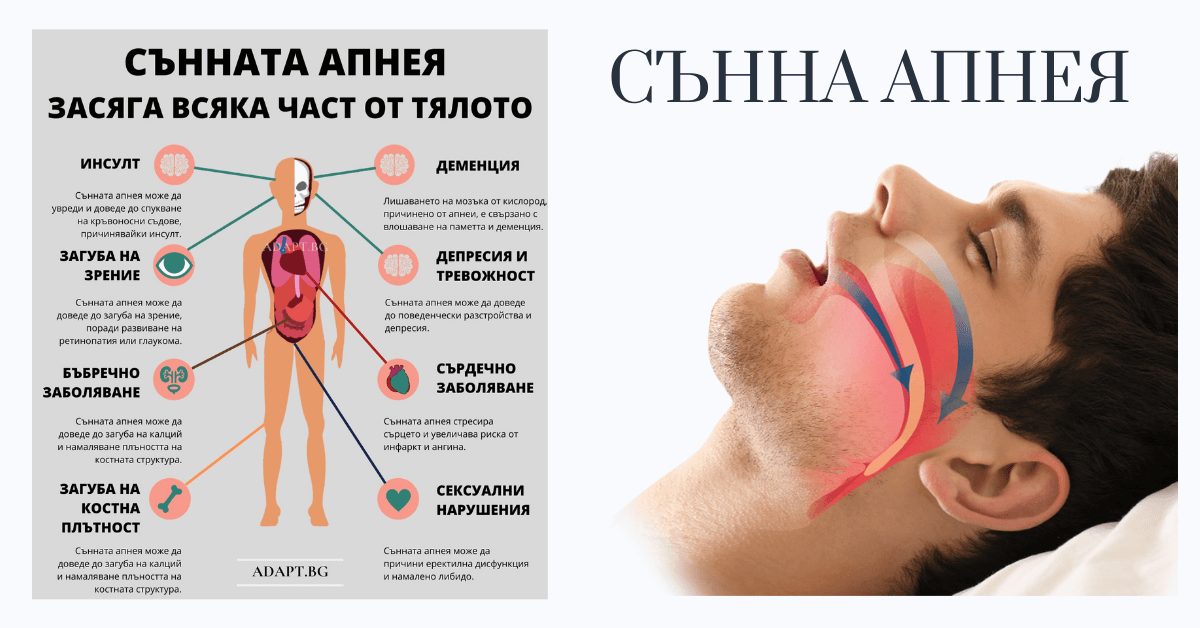
What is Sleep Apnea?
It is a serious condition in which breathing repeatedly stops and starts during sleep. These pauses (apneas) occur when the soft tissues in the back of the throat collapse and block the airway.
What's the Connection?
Imagine the following scenario, repeated hundreds of times a night:
- Collapse: The airway becomes blocked.
- Oxygen Drop: Blood oxygen levels begin to fall.
- Brain's Panic Reaction: The brain senses the danger of suffocation and triggers an emergency mechanism to save you. It sends a powerful "micro-arousal" signal.
- The Lifesaving Role of Grinding: At this very moment of awakening, the brain activates the strongest muscles in the area – the chewing muscles. A powerful clenching and grinding of the teeth follows. This is no accident. It is an instinctive attempt by the body to tighten the throat muscles, move the jaw forward, and forcefully open the blocked airway so that air can pass.
In other words, bruxism is often not the cause, but the reaction – your body's desperate attempt to breathe.
Treating such bruxism with only dental splints (guards) is like turning off the fire alarm while the house is still burning. The splint will protect your teeth (the alarm is off), but it will not solve the underlying problem – the cessation of breathing and lack of oxygen, which damage the heart, brain, and the entire body.
The Role of Adapt BG: A Flagship in Sleep Diagnostics and Treatment in Bulgaria
This is where the key role of specialized centers like Adapt BG comes in. For years, sleep apnea was an "invisible" condition in Bulgaria – little known to the general public and even many medical professionals. Adapt BG can be proud of its fundamental role in three very important areas:
- Education and Awareness: Through constant informational campaigns, articles, and consultations, Adapt BG managed to put sleep apnea on Bulgaria's healthcare map. We were among the first to start talking openly about the symptoms of sleep apnea, giving thousands of people the missing piece of their health puzzle.
- Modern and Accessible Diagnostics: In the past, diagnosing sleep apnea required a hospital stay, involving numerous cables and discomfort. Adapt BG are pioneers in introducing home somnography – a precise test that patients can conduct themselves in the comfort of their own home. This made diagnosis much easier, more accessible, and stress-free, which is key to timely detection of the problem.
- Comprehensive Treatment and Support: Diagnosis is just the first step. Adapt BG provides the gold standard in sleep apnea treatment – CPAP therapy. The therapy involves a device (CPAP) that delivers air at a slightly increased pressure through a mask, thus keeping the airway open throughout the night. The Adapt BG team doesn't just "sell devices" – we offer comprehensive care: we help choose the most suitable device and mask, set up the therapy, and provide follow-up support to ensure its success.
The result? When sleep apnea is treated effectively with CPAP therapy, breathing normalizes. The brain stops receiving panic signals. And in a huge percentage of cases... nighttime bruxism disappears. Simply because the body no longer needs it to save itself.
Action Plan: How to Approach Bruxism?
- Consult a dentist: This is your first stop. The dentist will assess the condition of your teeth and jaw and may recommend the creation of a custom dental splint. This splint is extremely important to protect your teeth from further wear.
- Ask yourself the right questions: Do you snore loudly? Do you wake up gasping for air? Do you feel constantly tired during the day, even though you've slept enough? If the answer is "yes," the risk of sleep apnea is high.
- Consult a sleep medicine specialist: Do not hesitate to seek consultation with experts like those at Adapt BG. They can assess your risk and guide you towards diagnosis.
- Stress management: If sleep apnea is ruled out as a cause, the focus then falls on stress. Relaxation techniques, meditation, yoga, psychotherapy, and improving sleep hygiene can have a huge effect.
- Lifestyle changes:
- Reduce caffeine and alcohol, especially in the evening.
- Avoid chewing on non-food items (pencils, pens).
- Create a relaxing bedtime ritual – a warm bath, reading a book, listening to calm music.

Bruxism is a Signal
Bruxism is much more than teeth grinding. It is a signal. Sometimes it's a signal of too much stress, and in many other cases, it is a desperate cry for help from a body struggling for a breath of air. Ignoring this signal is a mistake that can cost not only your teeth but also your heart's health and your quality of life.
Date: 03 Aug 2025


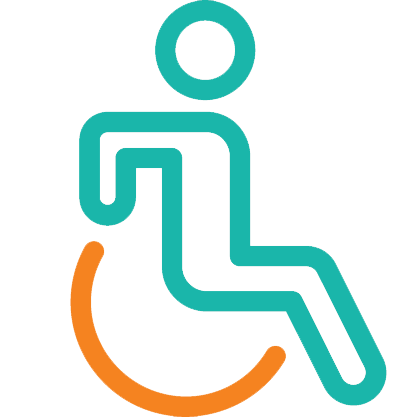
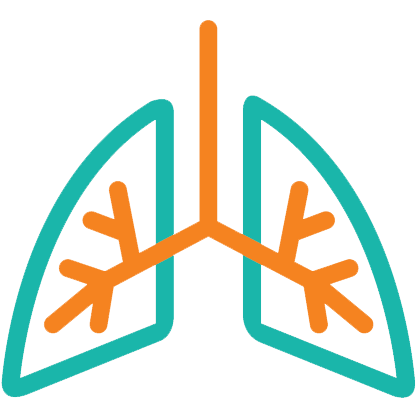
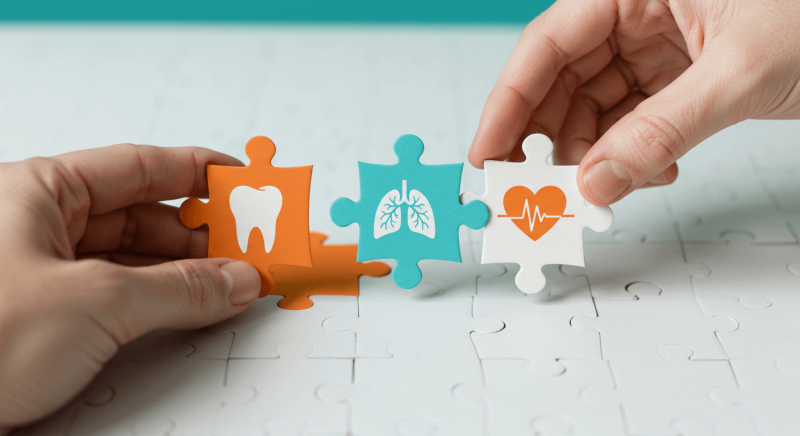
Post comment